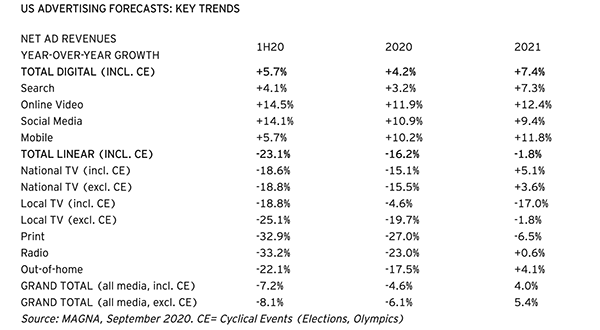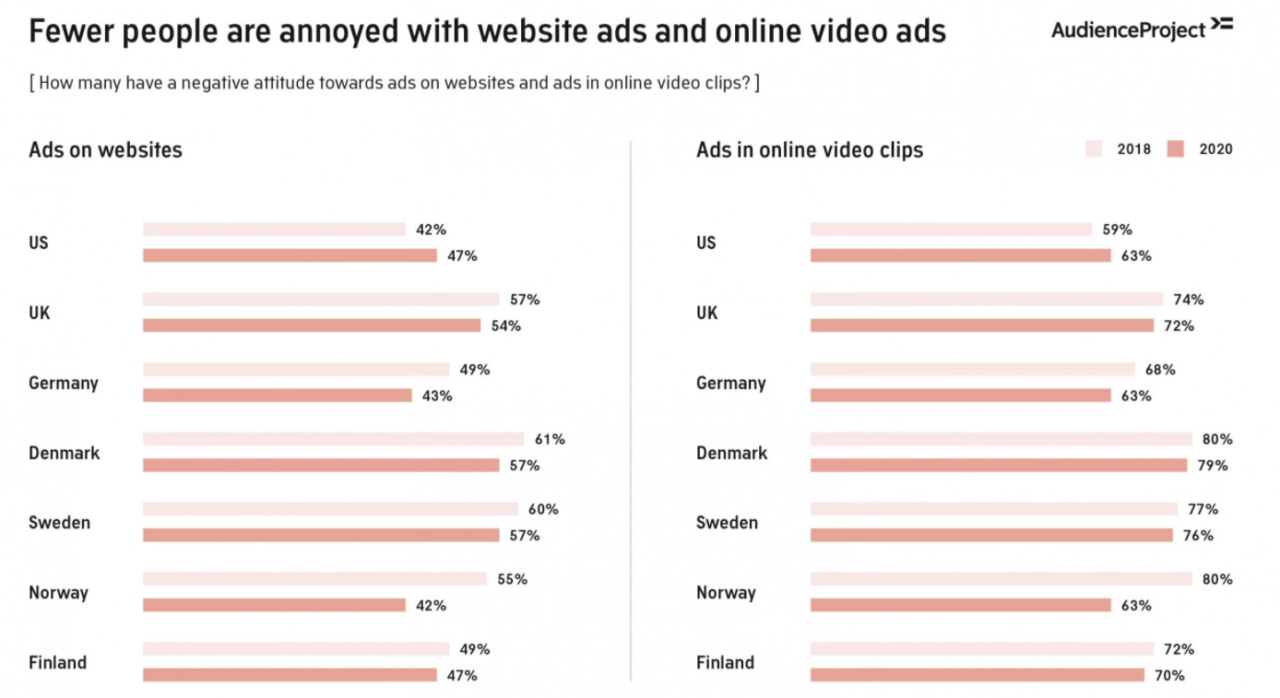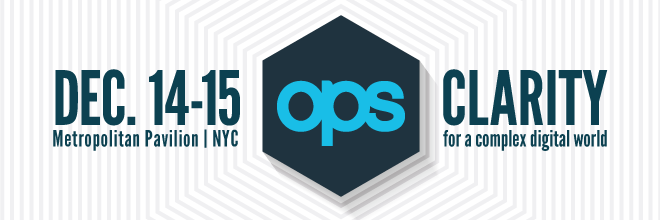 |
||||||||||||||||
|
||||||||||||||||
| FB Supports the Open Web? |

Image sourced from Twitter
|
| CafeMedia’s Chief Strategy Officer, Paul Bannister, who we like to call our resident W3C Expert, recently dropped quite a gem on Twitter. Has Facebook really become an open web ally? On the last few W3C PrivacyCG calls, Bannister notes that the social media behemoth appeared concerned about the rise of some new proposals, specifically IsLoggedIn right now, and how it will cement more dominance of Apple and Google over everyone else. Yep, A/G vs everybody. Reminds us of an Eminem Detroit collab. We digress. Further, in a response to the European Commission, FB laid out how Apple and Google use their dominance on browsers and app stores to make rules that apply to everyone else except themselves. |
| It makes sense for Facebook to be worried about these measures. OSes are the gateway to any user interacting with the network. You can get to FB without Google or Apple. Facebook is of course on the right side of the fight (along with Epic Games), but we can safely presume that their concern is more focused on how the rules that Google and Apple make around privacy cuts into their own pockets and not the preservation of the open web. The big privacy changes coming to Apple, and soon Google, are major roadblocks for publishers trying to monetize the free content on their sites with advertising dollars. In a tough economic climate like the one we're in today, rebounding becomes only harder when everything seems to be working directly against the open web’s survival. We’re hosting an upcoming webinar with eyeo, featuring revenue specialists from both the US and Europe to discuss some of these issues. You’ll hear about:
|
| ITP Toggled on for All Web Browsers in iOS |
| We got this tip from reputable sources in the Twitterverse: “ITP will be toggled on for all web browsers on iOS, meaning the full gamut: 3P cookie blocking, 1P JS cookie expiration cap, etc. Looks like Chrome will have tracking protections now, too! :)” To explain further, any domain/site using CNAME cloaking or CNAME record to circumvent tracking will be restricted. As developer Cory Underword wrote in a recent blog post about the news: “Any domain which Safari identifies as a tracker may have the cookie expiry reduced even if shielded by a CNAME record so that it appears as 1st party...Should this update make it to stable channel (and I fully expect it will) those solutions will cease working as intended as soon as the remote (destination) domain is identified by the device to have tracking capability as determined by the on device machine learning model.” According to Google Developer Expert, Simo Ahava…”this will apply to *all* 3P cloaking, and not just those classified by ITP (nor does it impact ITP’s classifier either). So it’s more far-reaching than just flagged domains.” |
| This is really, really, really big news for pubs, because it will definitely bring about CPM declines. Underwood further identifies the business impact in his post:
Looks like iOS14 has even more tricks up its sleeve than pubs ever thought. As one Tweeter suggested, maybe Apple does hate the open web. |
| Political Ad Spend to Spur Rebound |

Image sourced from MAGNA SEP 2020
|
| Remember back in June when told you, “digital ad spend will stabilize over the summer and recover almost fully after”? Welp, that’s still relatively the case, it’s just that the latest updated advertising forecast from IPG Mediabrands' MAGNA unit has projected a full-year decline of -4.6%, to $213 billion instead of the -4.3% we originally reported. That's neither here nor there, but there's more. Here’s the really good news: Political ad spend will buoy the entire digital media and advertising industry with an expected all-time high of $5.1 billion spent (that’s 3X the amount in 2016). Two-thirds of the political cash infusion will go toward local TV, while $1 billion will be spent on digital ad platforms. According to MAGNA, if it wasn’t for this surging political ad spend, all-media ad sales would decline by -6.1% instead of just -4.6%. Overall, MAGNA expects that the COVID boom of consumer digital media consumption and the return of news and sporting events will push ad budgets to stabilize reaching recovery in 2021 for a total 4% gain in ad spend. And here’s a little bad news: While seven of the top ten industry verticals are forecast to regrow ad budgets in 2021, automotive and retail are expected to remain in struggle mode. Travel, as expected, isn’t likely to fully recover until 2022. And even more worrisome is that linear media will continue to feel the brunt of the economic downturn. But overall, MAGNA is certain that ad revenue will stabilize and recover in 2021. |
| Maybe June was a tad too early for pubs to start feeling like the worst would ever be over. But the latest MAGNA forecast appears extremely hopeful, at least for digital. But everything is totally dependent on the pandemic coming under control and live sports, entertainment and news events staying on air. Consumer spending will remain sluggish with multitudes of people still unemployed well into 2021, which will greatly impact advertiser spend. Let’s also hope that another sweeping wave of the pandemic doesn’t hit—it could be even more brutal than the first and much harder to recover from. Fortunately for pubs though, as we’ve often said, they’re a resilient bunch. |
 |
| Amazon Closing in on Duopoly |
| It seems contradictory to say that consumers aren’t spending in one breath and then turn around and say they are in another. But that’s sort of what we’re doing here. The truth is it really depends on what consumers are spending. It’s not so much big-ticket items like cars and vacations as it is grocery and household items. These are the things that will help Amazon gain by gigantic leaps and bounds into tens of billions of dollars in additional ad revenue, according to investment firm Jefferies. There’s a $1.2 trillion CPG opportunity out there and as those brands warm up to Amazon’s influence in this market they’ll be positioned to siphon off at least 5% of total ad spend to add nearly $60 billion in incremental ad revenue, putting their ad business on pace to generate over $16 billion in sales this year, nearly doubling annual growth rate. In total, Jefferies predicts Amazon will garner $23.5 billion in ad sales in 2021 and $49 billion in 2025. |
|
As we watch most ad-supported businesses (even Google, cough, cough and Facebook, cough, cough) still reeling from COVID’s terrible force, the pandemic has set Amazon up to make great gains further cementing its position in the triopoly, while becoming an even greater threat to its rivals. We’ve often reported on Amazon’s attack on the duopoly, strengthened by how the retail giant leverages consumer data in its offerings to advertisers. Couple in the fact that the ecommerce giant is now offering programmatic buys on live streaming platform Twitch, available on Amazon’s Advertising Platform—and their intentions become quite clear. It won’t be long before they’re taking big bites out of Google’s hefty pie For those pubs not already taking advantage of Amazon’s TAM and UAM services, now just might be a good time to add them to your diversified revenue list. To be clear, CPG brands have $$$ to spend, so it’s important they have the confidence they can reach the audiences who are ready to spend on their goods. |
| Taboola and Outbrain Breakup |
| Say it isn’t so. We just heard that our invite to the biggest martech wedding of the decade has been officially revoked. You’d think one of the likeliest of all matches that could result in the mega power couple content recommendation engine of all ages would at least make it down the aisle, especially when the two parties seemed to have so much in common. Nope. That really wasn’t the case when it came to Taboola and Outbrain consummating their expectedly perfect union, even with the blessing of the DOJ. In the end, both companies, severely impacted by the ravages of the pandemic, just couldn’t see eye to eye. We’ve read reports that the dissolution was of a financial nature as well as a cultural one. Now with the deal completely off the table, the question remains, how will this impact publishers? |
| Competitive rivalry is really good for the marketplace. Pubs no longer have to worry about the potential lack of guarantees or downward pricing and a race to the bottom in ad quality that was sure to be a factor of the merger—some pubs already wondered whether quality could really get any worse? Taboola and Outbrain are now back to business as usual, duking it out. They’ll want to look over their shoulders though, now that Verizon and possibly Google are entering the fray. |
| Ad Blocking on the Decline |

Image sourced from AudienceProject
|
|
Forget all the hoopla around whether ad blockers are good for pubs, because they enable more efficient targeting. We’re of the school of thought that your adblocking audience is a valuable one that you want to develop better strategies around engaging to recoup lost revenue. Don't get it twisted, people still hate ads, especially video ads, but compared with numbers from 2018, there are a lot fewer people throwing things at their computers because of annoying ads. Maybe that’s because more people are blocking sessions on their mobile phones, but that’s an entirely different story. |
|
Despite the fact that ad blocking is waning, irrelevant ads are still a huge issue for consumers. It doesn’t hurt that part of those measures include strong-arming tactics like websites blocking access to content asking users to whitelist the site, register or subscribe, whenever an ad blocker is detected. But still, a good number of people trust the websites they visit and choose to whitelist and support the site with ad revenue or because they feel the ads aren't disturbing their experience. In two words: relevance matters. |









